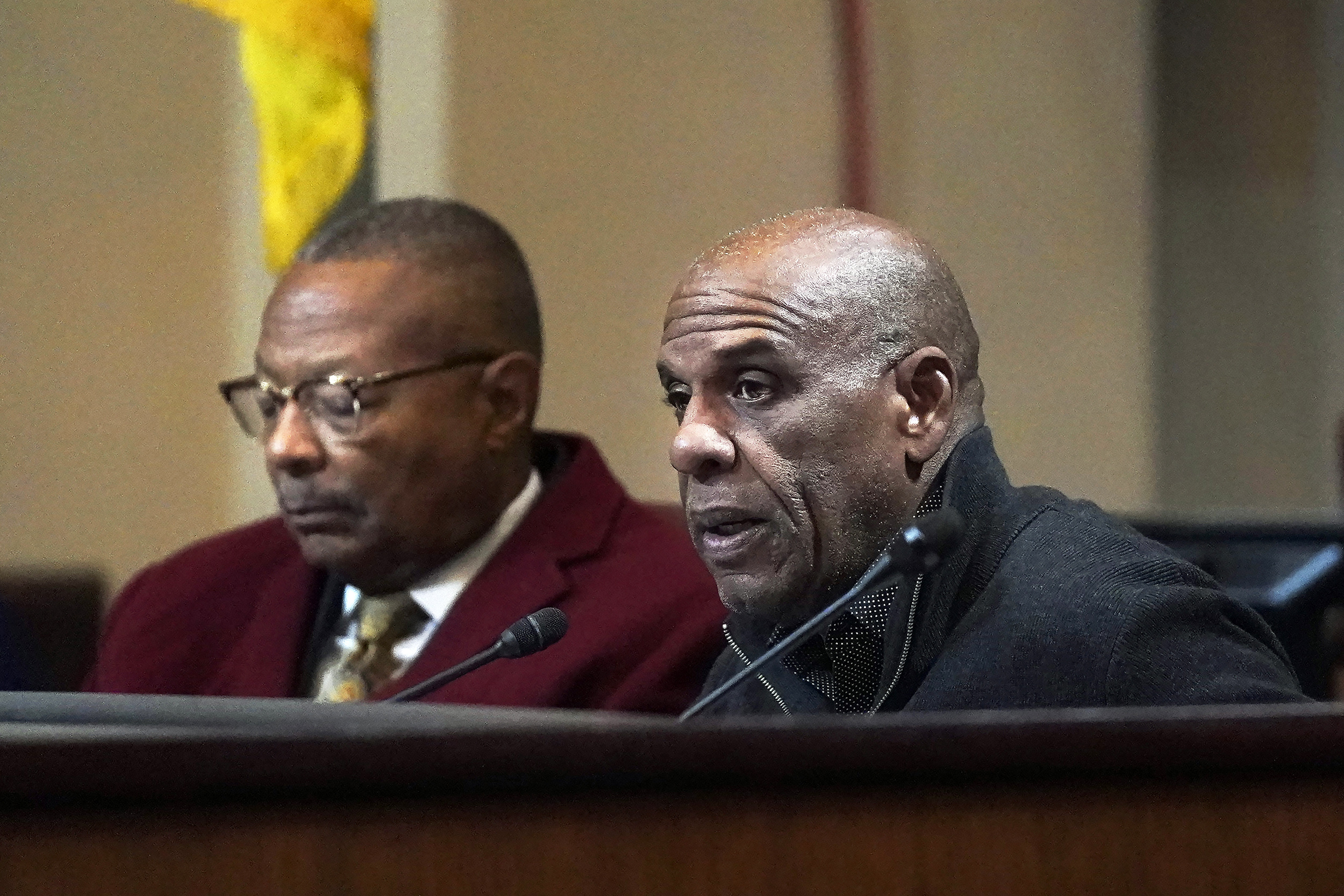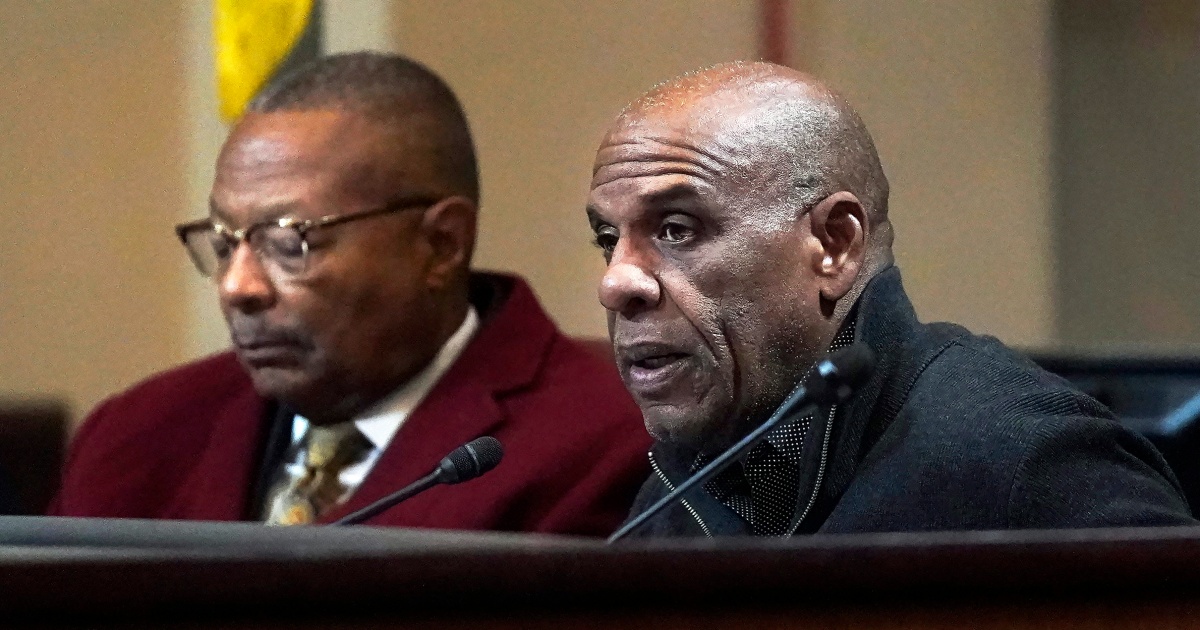
SACRAMENTO, Calif. — The California reparations task force last week concluded two years of hard work with a 1,100-page, comprehensive report that details the harms of slavery on Black people from California, recommendations of financial compensation and the creation of myriad programs and policies to redress the historical wrongs.
The report — compiled through exhaustive research by politicians, historians and economists and swayed by comments from the community over 12 public hearings — is encyclopedic in size. It has been hailed by task force members as a blueprint for other states to follow in the pursuit of reparations.
For two task force members, that was the easy part. A daunting challenge now lies ahead.
Sen. Steven Bradford and Assemblyman Reggie Jones-Sawyer are also members of the California Legislature, which has been charged with digesting the report and finalizing recommendations to be submitted to Gov. Gavin Newsom to sign into law. The really hard part for Bradford and Jones-Sawyer will be garnering their colleagues’ support for reparations.
The difficulty is not lost on the two veteran politicians whose presence for two years on the task force gives them unparalleled insight for the upcoming battle.
“Absolutely, it will not be easy,” Jones-Sawyer said. “But we are up for the fight.”
Step one: Getting all the state Assembly members to read the full report — presented in hardback form — That alone could be a substantial hurdle to clear, Bradford said.
“I believe the completeness of the report will have an impact — if they read it,” he told NBC News. “And that’s the big challenge, making sure all my colleagues read it. Even in reading it, you have to believe it, you have to accept it and then you have to be willing to change your hearts and minds.”
The depth of this report, called “a book of truth,” by task force member Lisa Holder, makes a thorough case for reparations as a way to make amends for California’s role in oppressing Black people through the remnants, policies, attitude and discrimination of slavery. The recommendations in the final report provide the “scholarly foundation,” task force member Don Tamaki said, to advance reforms in health care, housing, criminal justice, education and other areas “with continuing, persistent racial disparities.” Task force members believe the power of the report will be significant.
“In looking at this, you have to first admit to the wrongs, and that’s the first challenge we have,” Bradford said. “And then it’s about coming up with real atonement, real policies that help address some of the harms done to Black people in California.”
He described the “appetite” for reparations among assemblymembers as “tempered at best.” He pointed out that while states such asTennessee, Alabama and others voted last year to remove slavery and indentured servitude as penalty for crimes from their state Constitutions, the California Assembly failed to even vote on a similar measure.
Rather, state lawmakers squashed an amendment to remove “indentured servitude.”
“We still have it in our Constitution,” Bradford said. “We had colleagues who didn’t want to take that vote. So, by no stretch of the imagination do I believe this will be a cakewalk. It’s going to require some real massaging and networking, working our colleagues to get them to first read the report, accept what’s there and tackle legislation to address this.”
Task force members are championing their colleagues’ ability to get things done.
Tamaki said Bradford and Jones-Sawyer “understand they have the heavy burden of leading the process of transforming the recommendations into bills … But they are two highly experienced legislators with a lifetime of expertise in much of the subject matter addressed in the final report. Not only are they well connected with their legislative colleagues, both have served as chair of the Legislative Black Caucus, which will be crucial in leading this effort.”
He pointed out that support outside of the state Assembly — from citizens and organizations — will be paramount, as well. To that end, more than 330 organizations have endorsed the work of the task force and call for reparations, including mainstream organizations such as the Bar associations for the counties of Los Angeles, San Francisco, Sacramento, and Alameda, the California Wellness Foundation and the Weingart Foundation, the National Urban League, the NAACP and many groups from the social services, civil rights, faith, academic and other sectors.
Because of the detail of the report and the involved discussion around it, Bradford said, an agreement on legislation for Newsom to consider likely would not come until next year. Cheryl Grills, a clinical psychologist and task force member, said that between now and then, Bradford and Jones-Sawyer will need help from the people to help influence the Legislature.
“This is a fight for the heart and soul and the integrity and the authenticity of American society,” she said. “So, the real work begins now. And it’s not just up to our legislators. Community, it’s your turn at bat. We need you at bat to monitor, to inform and to impress upon your Legislature and your neighbors, your larger community that the work of retribution, the work of reparations is the work of American society — and any diminishment of recommendations for repair will not be accepted.”

